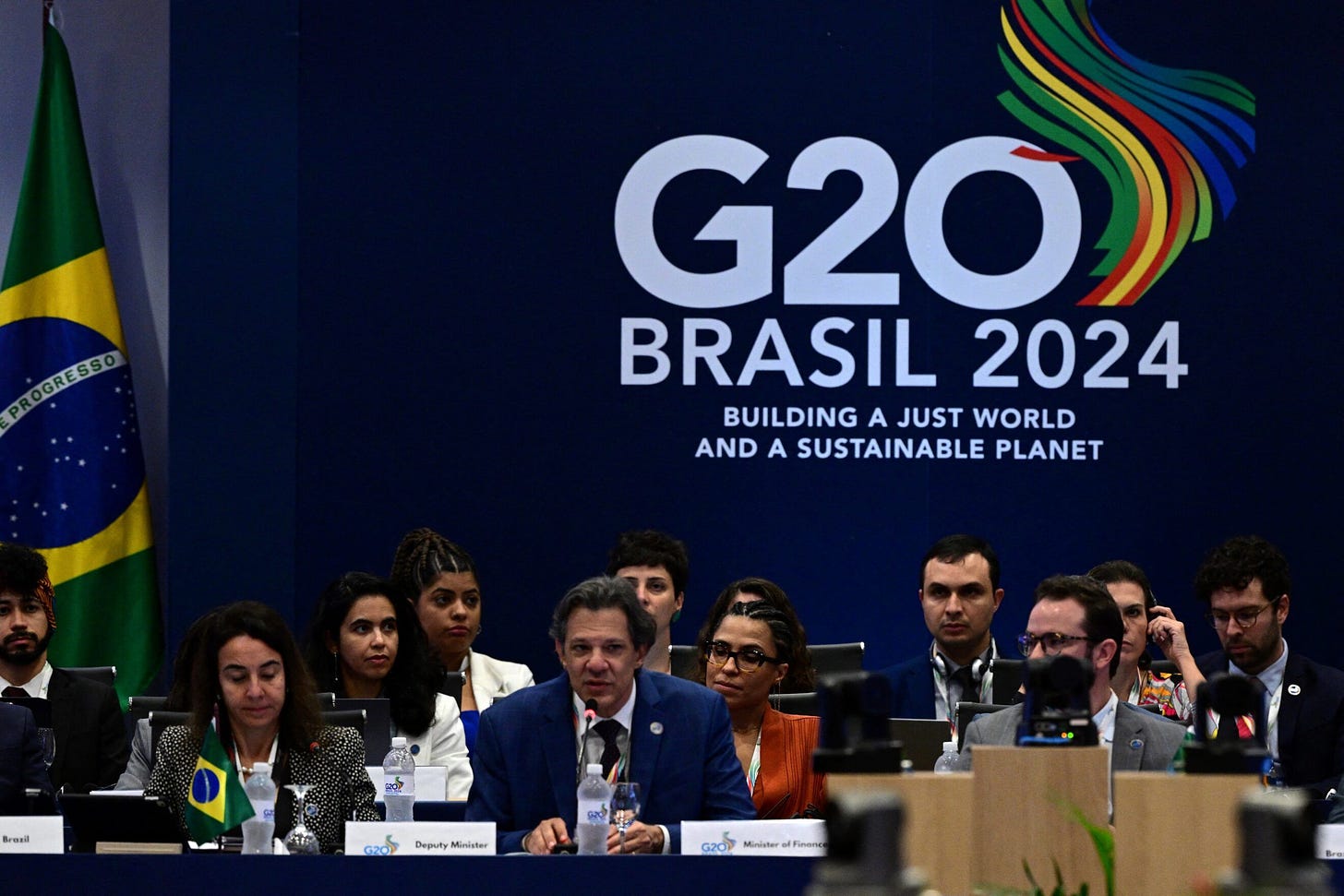G20 Proposes Taxing the Ultra-Rich
Reforms in Global Governance and the Eradication of Global Hunger and Poverty

The G20 summit in Rio De Janeiro concluded on Tuesday 19 November with a united call for reforms in the global governance, global cooperation in tackling climate change, hunger and poverty across the world. The declaration also demanded immediate ceasefire in Gaza and a peaceful settlement of disputes in Ukraine.
The G20 summit adopted a joint Leaders Declaration on Monday, in which it called for taxing the world’s ultra-rich and corporations as a way to fund the UN sponsored sustainable development goals (SDGs) such as eradicating hunger and poverty.
Brazilian President Luiz Inacio Lula Da Silva launched a global alliance against hunger and poverty which was joined by 82 nations as per Monday. 18 out of the 19 G20 countries joined the initiative, while Argentina remained the sole exception. Argentina, currently ruled by an ultra right-wing libertarian government led by Javier Milei, opposed the initiative and several other points in the declaration, calling them “socialist.”
The declaration expressed faith in progressive taxation as “one of the key tools to reduce domestic inequalities, strengthen fiscal sustainability, foster budget consolidation, promote strong, sustainable, balanced and inclusive growth.” It commended member countries who have initiated such tax reforms and asked others to do the same in order to achieve the SDGs.
Brazil, while initiating the global alliance earlier this year, had proposed a 2% wealth tax on the world’s ultra rich to mobilize the necessary resources to tackle the twin problems as a priority across the world.
However, recognizing the capacity gaps among countries across the globe to “implement large-scale policies, including those to eradicate hunger and reduce poverty” the declaration on Monday acknowledged the need for greater international support for such countries and a “need to scale up resources from all sources.”
According to UN reports, around 733 million people, mostly in the developing countries in Africa and Asia, faced some form of hunger in 2023. Most of these countries need international support to fund the programs launched to eradicate hunger as per the UNSDGs by 2030.
Reforms in global governance
Reforms in global institutions have been a major demand, pushed by the developing countries across the world in recent times, in order to end the hegemonic practices of the West and create a true multilateral world order. Given the repeated failures of existing institutions to tackle development needs of the poorer and developing countries, their failures even to maintain global peace and security, the reforms have acquired greater importance and support across the board. The G20 countries, which have been dominating the existing institutions so far, such as the US and EU, too acknowledged the need on Monday.
Chinese President Xi Jinping called for a change in the way the G20 countries see the world. President Xi reminded world leaders that “mankind lives in a community with a shared future,” where there is no need to see each other’s development as challenges but as opportunities. He emphasized the need to build “greater international consensus” to “promote an equal and orderly multipolar world and a universally beneficial and inclusive economic globalization.”
The declaration says that “in order to deliver on the promises of the United Nations and other relevant international organizations around the world” there is a need to “work for a reinvigorated and strengthened multilateral system, rooted in the purposes and principles of the UN charter and international law, with renewed institutions and reformed governance” in order to make them “more representative, effective, transparent and accountable, reflecting the social, economic and political realities of the 21st century.”
The document also called for the expansion of the Security Council to improve the representation of the countries in “Africa, Asia-Pacific and Latin America and Caribbean,” and reiterates the demands raised in the last G20 summit and several other multilateral summits for reforms, both in the international financial institutions as well as the World Trade Organization (WTO) to make them sensitive to the needs of the developing countries.
The declaration demanded an immediate end of conflicts across the world, expressing greater faith in peaceful negotiations. Xi and several other leaders called for a negotiated settlement of the Ukrainian conflict, and demanded an immediate ceasefire in Gaza and Lebanon.
“Affirming Palestinian right to self determination, we reiterate our unwavering commitment to the vision of the two-state solution where Israel and a Palestinian state live side by side in peace within secure and recognized borders, consistent with international law and relevant UN resolutions,” the declaration reads.
South African president Cyril Ramaphosa took over the presidency for the next year’s summit, while declaring that his country will continue to focus on inclusive economic growth, food security and sustainable development as priority areas during its presidency next year.



